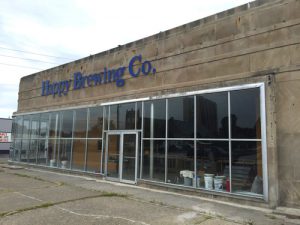
Brewpub closes after seven-month run in Butler-Tarkington
A brewery and restaurant that hoped to be part of the revitalization of the south end of the Butler-Tarkington neighborhood has closed, citing “unexpected circumstances.”

A brewery and restaurant that hoped to be part of the revitalization of the south end of the Butler-Tarkington neighborhood has closed, citing “unexpected circumstances.”
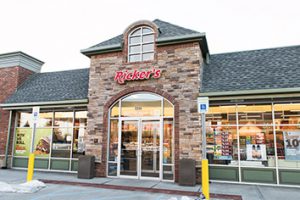
Ricker’s Chairman Jay Ricker told IBJ on Thursday morning that a purchase agreement for his 39-year-old company is in place and the deal is expected to close by the end of the month.

Kroger Co., the biggest grocery player in the Indianapolis-area market, orders about 6 billion bags each year.
The Cincinnati-based grocery chain said the store, which employs 65, is unprofitable.
Kroger, the biggest grocery chain in the country, said it will "quickly" expand the service to other markets over the next few months.
The North Carolina-based grocer said Monday that the locations awaiting the ax are “longtime, underperforming stores.”

The food cooperative's board said "sales have hit an all-time low" and that the grocery doesn't have enough money to pay employees. The final day will be Monday.
The announcement on Thursday, ahead of the Memorial Day weekend, was the latest attempt to combat liquor stores’ exclusive right to sell cold carry-out beer in Indiana.
Kroger Co. and United Kingdom-based online grocer Ocado Group are working on identifying sites for three automated distribution centers in the United States this year and may open as many as 20 within three years.

Since the grocer bought seven former Indianapolis-area Marsh stores last July, it has reopened only a three.
The online retailer has made a number of changes to Whole Foods since it bought the chain last year.
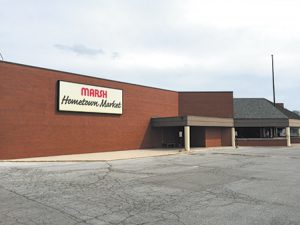
Tens of millions of unsecured claims will go unpaid when the Indianapolis-based grocery chain completes its liquidation in bankruptcy court.

The Cincinnati-based grocery chain instead is opting to renovate a much smaller existing grocery across the street from where the proposed store would have been built. The decision leaves a massive hole for Kite Realty Group to fill in Fishers Station shopping center.

When Marsh moved Larry Schultz out of its Mass Ave store years ago, customers threw a fit. Kroger was smart enough to make him manager of its new downtown store.
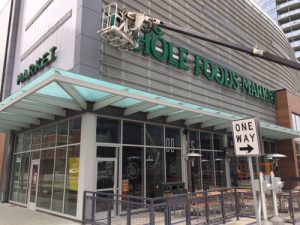
Amazon.com’s Inc.’s acquisition of Whole Foods Market—the national grocery chain that is opening its third local store in downtown Indianapolis on Wednesday—has sparked major disruptions in the grocery industry in the short time since the deal closed in late August.

The Marsh closed in April 2017 as the grocer teetered toward bankruptcy. Meanwhile, Aldi is on a tear with its plans to modernize existing stores and open new ones.
The move puts the world's largest retailer in direct competition with meal-kit companies such as Blue Apron and HelloFresh.
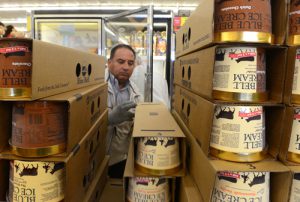
The iconic Texas-based brand has been unavailable locally since 2015, when the company recalled all of its products nationwide to deal with a listeria outbreak. In addition to reappearing in stores, Blue Bell is reopening a distribution center in Indianapolis.
After Amazon acquired Whole Foods for nearly $14 billion in August, rival grocers began preparing for the day the online retail giant would expand Whole Foods grocery delivery.
The stores employ 11,000 associates in 18 states and operate under the banners Turkey Hill, Loaf ‘N Jug, Kwik Shop, Tom Thumb and Quik Stop.